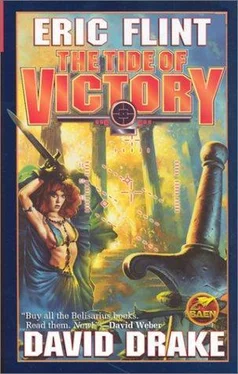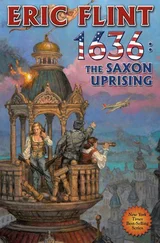Eric Flint - The tide of victory
Здесь есть возможность читать онлайн «Eric Flint - The tide of victory» весь текст электронной книги совершенно бесплатно (целиком полную версию без сокращений). В некоторых случаях можно слушать аудио, скачать через торрент в формате fb2 и присутствует краткое содержание. Жанр: Альтернативная история, на английском языке. Описание произведения, (предисловие) а так же отзывы посетителей доступны на портале библиотеки ЛибКат.
- Название:The tide of victory
- Автор:
- Жанр:
- Год:неизвестен
- ISBN:нет данных
- Рейтинг книги:3 / 5. Голосов: 1
-
Избранное:Добавить в избранное
- Отзывы:
-
Ваша оценка:
- 60
- 1
- 2
- 3
- 4
- 5
The tide of victory: краткое содержание, описание и аннотация
Предлагаем к чтению аннотацию, описание, краткое содержание или предисловие (зависит от того, что написал сам автор книги «The tide of victory»). Если вы не нашли необходимую информацию о книге — напишите в комментариях, мы постараемся отыскать её.
The tide of victory — читать онлайн бесплатно полную книгу (весь текст) целиком
Ниже представлен текст книги, разбитый по страницам. Система сохранения места последней прочитанной страницы, позволяет с удобством читать онлайн бесплатно книгу «The tide of victory», без необходимости каждый раз заново искать на чём Вы остановились. Поставьте закладку, и сможете в любой момент перейти на страницу, на которой закончили чтение.
Интервал:
Закладка:
The next morning, just after daybreak, Eusebius spotted a Malwa warship under construction tied up to a small pier along the river bank. The effort had all the earmarks of a last-minute, jury-rigged project. From what he could see of the half-completed ship, the Malwa had taken a small oar-powered river barge and were attempting to armor it with iron plate and place a handful of field guns aboard.
A pitiful thing, really, even had it been completed.
But, pitiful or not, no lion allows a jackal to contest its domain. So, after a quick exchange of signals with Menander-the flags were working quite well-Eusebius paddled over to put paid to that upstart nonsense.
Before he got there, the Malwa managed to wrestle around one of the field guns and fire two shots at the Victrix. One shot missed entirely. The second struck the heavy bow shield a glancing blow which did no worse than loosen a few bolts and scatter some chips of wood into the river.
Thereafter, the enemy gunners ceased their efforts and scampered hurriedly off the half-finished little warship. Which, within a few minutes, made a splendid bonfire to warm Roman souls as they continued chugging up the river toward Belisarius.
They were not far away now, if Menander was reading the skimpy charts correctly. (Charts which had become very far from skimpy as they made their way upriver. Future expeditions would not have to guess and grope their way through hidden sandbars.) And Eusebius had no doubt at all that the great uncertainty in the equation-had Belisarius reached the fork of the Chenab and seized it? — was no longer uncertain at all. Everything about the Malwa behavior that he could see practically shrieked panic and confusion.
Which, of course, is what you expect from a pack of jackals after a lion enters their lair.
Chapter 41
Whatever else could be said of Sittas, he was the most aggressive cavalry commander Belisarius had ever known. As soon as the order was given, not long after daybreak, the Greek nobleman led all eight thousand of his cataphracts in a charge out of the four camps in which they had been waiting. In four columns, the heavily armored horsemen smashed into twice that number of Malwa soldiers who had piled up in the areas between the fortresses during the preceding day and night.
Despite the disparity in numbers, the battle was really no contest. The Malwa were confused and disorganized. More often than not, their soldiers were no longer part of coherent and organized units. Nothing but individuals, in many cases, who had sought shelter from the bloodbath beneath the fortress walls.
Their shelter lasted no longer than the darkness of night. With dawn, the cataphracts turned it into yet another holocaust. Well-led, properly organized and coordinated volley fire-with the musketeers braced by pikemen-could stave off any cavalry assault. But a huge mass of infantrymen out of formation, even when many of them were armed with guns and grenades, could not possibly stand up to the weight of a heavy cavalry charge.
The more so when that charge was made by cataphracts. The Roman armored horsemen bore no resemblance at all to the sloppy hordes which a later medieval world would call "cavalry." They were highly disciplined, fought in formation, and obeyed orders. Orders which were transmitted to them by officers-Sittas most of all-who, for all their occasional vainglory, were as cold-blooded and ruthless as any commanders in history.
Although the cataphracts emerged from the camps at a gallop, in order to cross the distance to the enemy as soon as possible, the charge never once threatened to careen out of control. As soon as the cornicenes blew the order, the cataphracts reined their mounts to a halt and drew their bows. Then, firing volley after volley from serried ranks, they shredded whatever initial formations the Malwa officers had hastily improvised.
At close range-a hundred yards or less-cataphract arrows struck with as much force, and far greater accuracy, than musket balls. And even Roman cataphracts, though not such quick archers as their Persian dehgan counterparts, could easily maintain a rate of fire which was better than any musketeers of the time.
A better rate of fire, in truth, than even Roman sharpshooters could have managed, using single-shot breech-loading rifles. The drawback to the bow as a weapon of war had never been its inferiority to the gun, after all-not, at least, until firearms developed a far greater sophistication than anything available until the nineteenth century. In the hands of a skilled archer, a bow could be fired faster and more accurately than a musket, much less an arquebus. Nor, in the case of the hundred-pound-pull bows favored by cataphracts, with anything less in the way of penetrating power.
The real advantage to the gun was simply its ease of use. A competent musketeer could be trained in weeks; a skilled archer required years-a lifetime, in truth, raised in an archer's culture. Moreover, powerful bows required far more in the way of muscle power than guns. Only men conditioned to the use of the weapons for years could manage to keep firing a bow for the hours needed to win a battle. The wear which a musket placed on its user was nothing in comparison.
And so, the bow was doomed. But in the conditions which prevailed on that battlefield, on that day, the bow enjoyed one of its last great triumphs. Within minutes, whatever might have existed of a Malwa "front line" resembled nothing so much as a tattered and shredded piece of cloth.
That done, the cornicenes blew again. The cataphracts put away their bows and took up their lances. Then, cantering forward in tight formation, they simply rolled over the thousands of Malwa soldiers who were now trying to scramble out of the way.
Within a few more minutes, the scramble turned into a precipitous rout. The cornicenes blew again, and the cataphracts took up their long Persian-style sabers. And then, in the hour which followed, turned the rout into a massacre. As always, infantry fleeing in panic from cavalry were like antelopes pursued by lions-except these lions, seeking victory rather than food, were not satisfied with a single prey. They did not give up the pursuit until the open terrain between the fortresses was almost as red with blood as the moats which surrounded them. In their wake, thousands of enemy bodies lain strewn across the landscape.
When the cornicenes blew again, sounding the recall, the cataphracts trotted back to their camps. Full of fierce satisfaction, and arguing among themselves over what proper name to use to label yet another battlefield triumph.
In the end, although the town itself was no longer within Belisarius' line of outer fortifications, they settled on the name of Sitpur. Perhaps because the name was short, and had a nice little ring to it. More likely, because the cataphracts had become rather fond of the chowpatti which had been baked there, and which gave them their strength. Even Maurice was now claiming to have developed a taste for the foreign bread.
" The Battle of Sitpur! " roared Sittas triumphantly, as he strode into Belisarius' new command post many miles to the south. "You can add that one to your list, O mighty Belisarius!"
Belisarius smiled. Then, so infectious was Sittas' enthusiasm, grinned outright. "Has a nice sound, doesn't it?"
"Yes, it does," proclaimed Sittas. The words came out in a bit of a mumble, because the cataphract general was already stuffing himself from the pile of chowpatti on a small table just inside the bunker entrance. "Great stuff," he mumbled.
"Any problems?" asked Maurice. Like Belisarius himself, Maurice had retreated to the inner line of fortifications as soon as the charge began. Neither one of them had expected Sittas to fail, and they had the next stage of the siege to plan.
Читать дальшеИнтервал:
Закладка:
Похожие книги на «The tide of victory»
Представляем Вашему вниманию похожие книги на «The tide of victory» списком для выбора. Мы отобрали схожую по названию и смыслу литературу в надежде предоставить читателям больше вариантов отыскать новые, интересные, ещё непрочитанные произведения.
Обсуждение, отзывы о книге «The tide of victory» и просто собственные мнения читателей. Оставьте ваши комментарии, напишите, что Вы думаете о произведении, его смысле или главных героях. Укажите что конкретно понравилось, а что нет, и почему Вы так считаете.











